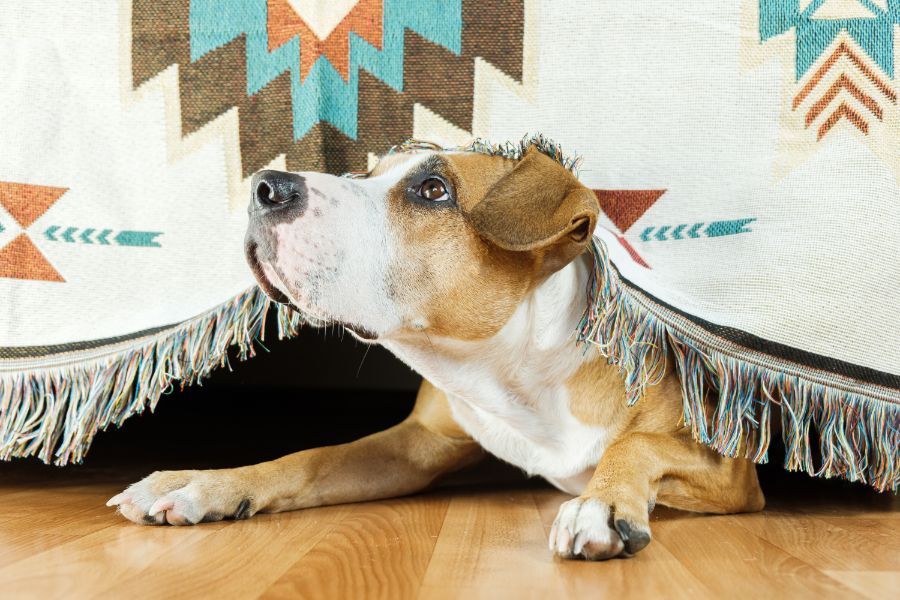Summer Storms and Fireworks Bring Pet Noise Anxiety to a Head
Cats and dogs have excellent hearing and pick up a wider range of high and low frequencies. Sounds trigger a series of mental processes to determine whether they should feel frightened or threatened.
If a pet has previous experience with a noise, or is able to visually link the sound to a visual, they are more likely to dismiss noise as “safe” or “normal”. Consistent exposure to noise, especially from a young age, can desensitize them.
Unfortunately, pet noise anxiety – especially triggered by fireworks and thunder – can become a real challenge for both pets and people alike.
On Guard, Always
Pet noise anxiety can occur for any reason, at any time in a pet’s life. A young pet that never showed fear or doubt during a storm, parade, or fireworks show can still develop anxiety as they age, or after any scary experience. Pet owners should never assume that their pet is accepting of any loud, upsetting, or unpredictable noises, even if they have been in the past.
Mild to Extreme
When pets are triggered by loud noises, such as thunder or fireworks, symptoms can range from mild to extreme. If left alone, pet noise anxiety can progress into noise phobias which can significantly diminish a pet’s quality of life over time.
If your pet demonstrates any of the following symptoms of noise anxiety, it’s time to act:
- Withdrawal
- Hiding
- Escape attempts
- Pacing
- Whining, crying, howling
- Excessive yawning
- Uncharacteristic clinginess
- Destructive behavior
- Self-harm
Seal the Perimeter
One of the best defenses against pet noise anxiety is to simply keep them inside the house, away from exit doors and windows. A back bedroom or office can serve as a safe, comfortable haven from loud noises.
If your pet is crate trained, encourage them to hang out there on a warm, soft blanket. Offer some healthy treats, fresh water, and maybe a game to distract them from their fear. Dim lighting and white noise, like a fan, work well to calm frayed nerves.
Be Cautious
Stay close and give them attention, but don’t overreact to their symptoms. This may inadvertently reinforce pet noise anxiety, making it more difficult to overcome. Instead of giving your attention only when they’re stressed, simply reward calm behavior.
Coping With Pet Noise Anxiety
Because they cannot make sense of the fear, many pets respond to a fight-or-flight instinct when it comes to thunder or fireworks. Also, barometric pressure can affect dogs long before we feel it. As a result, it’s critical to check that your pet is microchipped, wearing identifiable tags, and up to date on all their shots and medication.
To mitigate the terrible feelings that pets have regarding loud, jarring, unforeseeable sounds, anxiety wraps, like the Thundershirt, can be employed. It’s a good idea to train your pet to wear their wrap long before triggering situations arise. Pheromone sprays and prescription medication can also benefit pet noise anxiety symptoms.
Stay Alert
No pet should suffer through doubt, fear, stress or anxiety. If you have questions or concerns about your pet’s behavior, please let us know. Our team is always here for you and your pet at Sunrise Boulevard Animal Hospital.

